MAJOR LAW FIRMS COMMIT $1.75 MILLION OVER 10 YEARS TO BLACK FUTURE LAWYERS PROGRAM
John Schofield
Originally published in Law360™ Canada, © LexisNexis Canada Inc.
Dave Leonard, the Toronto-based partner and CEO for McCarthy Tétrault LLP, said it only took a 20-minute conversation with Torys LLP managing partner Matthew Cockburn to convince him to sign on to one of the Canadian legal community’s largest ever recruiting drives.
Now, 14 of Canada’s largest law firms are committing $1.75 million over the next 10 years to encourage Black students to pursue legal careers and, they hope, to join their firms. The money will fund the expansion of the University of Toronto-based Black Future Lawyers (BFL) program to university campuses in other parts of Ontario and Canada.
 Torys and McCarthy Tétrault have been joined by Blake, Cassels & Graydon LLP, Borden Ladner Gervais LLP, Cassels Brock & Blackwell LLP, Davies Ward Phillips & Vineberg LLP, Dentons, Fasken, Goodmans LLP, Gowling WLG, McMillan LLP, Norton Rose Fulbright Canada LLP, Osler, Hoskin and Harcourt LLP and Stikeman Elliott LLP.
Torys and McCarthy Tétrault have been joined by Blake, Cassels & Graydon LLP, Borden Ladner Gervais LLP, Cassels Brock & Blackwell LLP, Davies Ward Phillips & Vineberg LLP, Dentons, Fasken, Goodmans LLP, Gowling WLG, McMillan LLP, Norton Rose Fulbright Canada LLP, Osler, Hoskin and Harcourt LLP and Stikeman Elliott LLP.
Leonard said each firm is contributing an equal amount and the effort will help them meet their obligations as participants in the Black North Initiative, which was launched last year by the the Canadian Council of Business Leaders Against Anti-Black Systemic Racism. The campaign challenges senior Canadian business leaders to commit their companies to specific actions and targets designed to end anti-Black systemic racism and to create opportunities for all of those in the underrepresented Black, Indigenous, People of Colour (BIPOC) community.
One of the seven goals included in the Black North law firm pledge, unveiled last July, is to commit to the goal of achieving 3.5 per cent of executive, board and/or senior leadership roles based in Canada being held by Black or visible minority leaders by 2025.
“We saw this as a very concrete action that would address a significant barrier to Black lawyers entering Bay Street, which is we need more Black university students going into law school, graduating and coming to Bay Street,” Leonard told Law360™ Canada.
“We saw this as a very concrete action that would address a significant barrier to Black lawyers entering Bay Street, which is we need more Black university students going into law school, graduating and coming to Bay Street,” Leonard told Law360™ Canada.
“I think the unique thing about this is the coming together of these 14 firms,” he added. “We usually compete for talent. But this is a recognition by these firms that this is an area where we need to come together to help remove barriers and at least take steps toward solving what has been a systemic and historic under-representation of Black lawyers on Bay Street — and quite frankly Black people in the legal profession.”
Konata Lake, a Toronto-based partner with Torys, said its support of the BFL program will help it to develop a pipeline of talented Black-identifying lawyers as part of its overall effort to promote diversity, equity and inclusion at the firm and across the legal profession.
“Torys has proudly been involved in supporting the groundbreaking Black Future Lawyers program since its inception last year, and we were excited to identify an opportunity to leverage our connections with Bay Street firms in furtherance of BFL’s worthy and ambitious objectives,” he said in an e-mail to Law360™ Canada. “In addition to our committed financial support to BFL,” he added, “Torys is excited to work with BFL as part of an advisory group that will help shape BFL’s programmatic and expansion goals.”
Lake said that Torys and McCarthy Tétrault are working with BFL to develop a program blueprint for a new business law stream. All of the firms are invited to participate in BFL’s key mentorship program, along with its educational sessions, workshops and conferences.
U of T law student Novalee Davy, who serves on two BFL working groups and as co-president of the campus chapter of the Black Law Students’ Association, said the additional funding will enable to BFL program support many more Black students. The program has already received funding from the U of T provost’s office and Scotiabank, and was able to hire a full-time co-ordinator for this academic year.
Davy said undergraduate chapters have already been launched at Western, York and McMaster universities and the near-term plan is to set up additional undergraduate chapters at the University of Toronto’s downtown, Scarborough and Mississauga campuses and at Ryerson University.
This academic year alone, she noted, more than 130 students signed up for BFL’s mentorship program. The Black Student Application Process, a joint initiative between BLSA and the BFL program, has also helped many Black students with law school admissions process.
Josh Lokko, a graduate of U of T’s J.D./MBA program who was involved in the founding of the Black Future Lawyers program, said there’s no single barrier discouraging Black undergraduates from pursuing legal careers.
There’s a myriad of different students with a myriad of different experiences that students have before they come to law school,” he told Law360™ Canada. “It’s very hard to say there’s a particular one, and that’s why the BFL program has so many different elements.
“There’s a myriad of different students with a myriad of different experiences that students have before they come to law school,” he told Law360™ Canada. “It’s very hard to say there’s a particular one, and that’s why the BFL program has so many different elements.”
Securing the additional long-term funding now opens up a range of possibilities for the program, added Lokko, who is a Toronto-based associate in the capital markets group at Shearman & Sterling LLP.
“Students have come back year after year who have discussed how much the program changed their opinion on law school, how much it prepared them for it, how much it exposed them to areas of law that they had never heard of before, and also just inspired them to apply for law school when they previously didn’t see themselves there,” he said.
“It’s really exciting to me to think about what the next generation of students is going to be able to achieve now that they have this program behind them making sure they achieve their full potential,” he added.

 According to the report, 41 per cent of the GCs holding board positions “are now employed in a non-GC executive role.”
According to the report, 41 per cent of the GCs holding board positions “are now employed in a non-GC executive role.” Torys and McCarthy Tétrault have been joined by Blake, Cassels & Graydon LLP, Borden Ladner Gervais LLP, Cassels Brock & Blackwell LLP, Davies Ward Phillips & Vineberg LLP, Dentons, Fasken, Goodmans LLP, Gowling WLG, McMillan LLP, Norton Rose Fulbright Canada LLP, Osler, Hoskin and Harcourt LLP and Stikeman Elliott LLP.
Torys and McCarthy Tétrault have been joined by Blake, Cassels & Graydon LLP, Borden Ladner Gervais LLP, Cassels Brock & Blackwell LLP, Davies Ward Phillips & Vineberg LLP, Dentons, Fasken, Goodmans LLP, Gowling WLG, McMillan LLP, Norton Rose Fulbright Canada LLP, Osler, Hoskin and Harcourt LLP and Stikeman Elliott LLP. March is Developmental Disabilities Awareness month and an apt time to shed light on the unique challenges facing persons with developmental disabilities in the criminal justice system. A long-standing challenge has been the equitable and meaningful participation by persons with developmental disabilities in the court process.
March is Developmental Disabilities Awareness month and an apt time to shed light on the unique challenges facing persons with developmental disabilities in the criminal justice system. A long-standing challenge has been the equitable and meaningful participation by persons with developmental disabilities in the court process.
